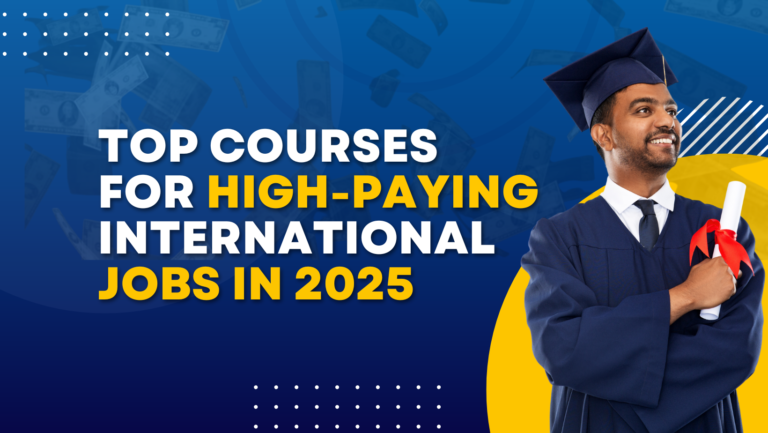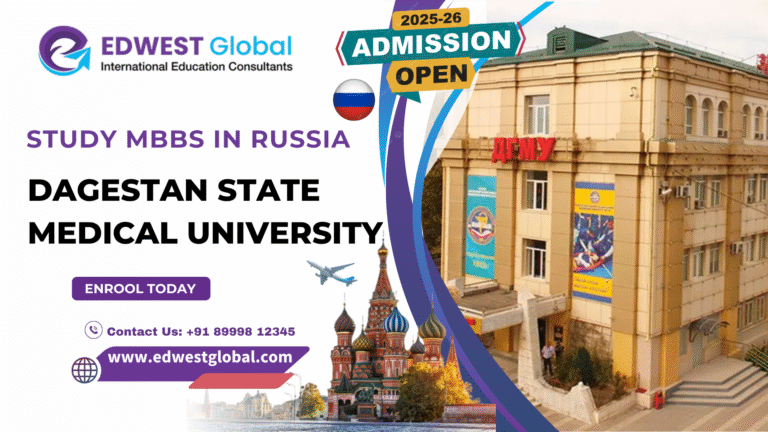The Role of AI & Technology in Transforming International Education by 2025
The Future of International Education: AI & Technology in 2025
Artificial Intelligence (AI) and technology are revolutionizing international education, making it more accessible, personalized, and efficient. From AI-driven admissions processes to virtual classrooms, the global education landscape is evolving rapidly.
1. AI in University Admissions & Application Process
AI is transforming university application processes by streamlining document verification, eligibility checks, and application tracking. With AI-powered tools, students can receive personalized study abroad recommendations based on their academic background and career goals. Universities now use machine learning algorithms to analyze applications more efficiently, reducing processing times and increasing acceptance rates for qualified students.
Example: Some universities have implemented chatbots for student queries, allowing applicants to get instant responses regarding course eligibility, visa requirements, and tuition fees.
2. Virtual Classrooms & AI Tutors
The rise of virtual learning platforms has made education more accessible to international students. AI-powered personalized learning systems adapt course materials to a student’s pace, helping them grasp concepts more effectively. AI tutors and chatbots assist students in subjects like mathematics, programming, and languages, offering real-time feedback and 24/7 support.
Benefits:
- Flexible learning schedules for students across different time zones.
- Automated assessments to track student progress and provide instant feedback.
- Multilingual AI tutors making international education more inclusive.
3. Smart Classrooms & EdTech Innovations
Many study abroad universities are integrating smart classrooms equipped with AI-enhanced tools such as facial recognition for attendance tracking and real-time data analytics to assess student engagement. These innovations ensure that students receive interactive and immersive learning experiences.
EdTech tools improving international education:
- Virtual Reality (VR) & Augmented Reality (AR): Providing real-world simulations for subjects like medicine, engineering, and architecture.
- Blockchain Technology: Securely storing student records and academic credentials, simplifying the verification process for global employers and universities.
4. AI-Powered Career Guidance for International Students
AI is helping students make informed career decisions with advanced career guidance tools. These platforms use big data analytics to suggest the best courses, universities, and job opportunities for international students post-graduation. AI-driven career counseling provides insights into industry trends, helping students align their education with market demands.
🔗 Find expert career guidance for international students here.
5. Language Learning & AI Translation Tools
For students pursuing higher education abroad, language barriers can be challenging. AI-powered language learning apps and real-time translation tools are breaking these barriers. Speech recognition AI helps students improve pronunciation, while instant translation software makes it easier to understand lectures in a foreign language.
6. AI in Visa & Immigration Processes
AI has simplified student visa application processes by automating documentation, background checks, and application tracking. Many governments and educational institutions now use AI to detect fraudulent applications, ensuring a smoother and faster process for genuine students.
🔗 Get help with your student visa application here.
Pros and Cons of AI in International Education
Pros:
- Increased accessibility – AI-powered platforms allow students from remote areas to access world-class education.
- Personalized learning – Adaptive learning algorithms tailor course content to individual student needs.
- Efficient application processing – AI streamlines admissions, reducing paperwork and processing times.
- Improved career guidance – AI-based counseling helps students choose the right career path based on data insights.
Cons:
- Lack of human interaction – AI tutors may not provide the same level of mentorship as human educators.
- Data privacy concerns – Storing student information in AI systems may pose cybersecurity risks.
- High implementation costs – Integrating AI technology requires significant financial investment.
FAQs About AI in International Education
Q1: How is AI improving university admissions for international students? AI automates document verification, eligibility assessment, and application tracking, reducing processing times and increasing efficiency.
Q2: Can AI help students choose the best university for their studies? Yes, AI-powered career guidance tools analyze student profiles and suggest suitable universities and programs based on their academic background and goals.
Q3: Are AI tutors as effective as human teachers? AI tutors provide 24/7 support and personalized learning, but they may lack the emotional intelligence and mentorship that human educators offer.
Conclusion: AI is the Future of Global Education
The impact of AI and technology on international education in 2025 is undeniable. From AI-driven admissions and virtual classrooms to career guidance for international students, technology is creating new opportunities for learners worldwide. As AI continues to evolve, students, universities, and educators must adapt to these changes to stay ahead in the global education landscape.
Explore Study Abroad Opportunities with EdWest Global
Looking to study abroad? Get expert guidance on universities, scholarships, and career opportunities. We provide comprehensive support for admissions, visa applications, and career counseling to help students achieve their global education dreams.
Our experienced consultants work closely with top universities worldwide to offer the best study abroad options tailored to your needs. Visit our contact page to connect with our advisors today!







